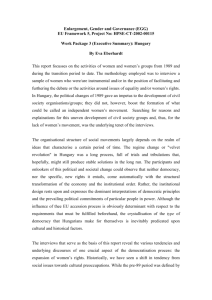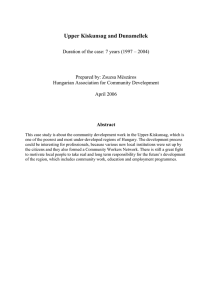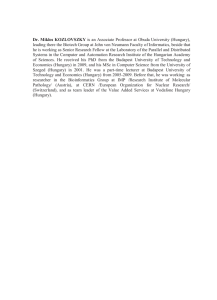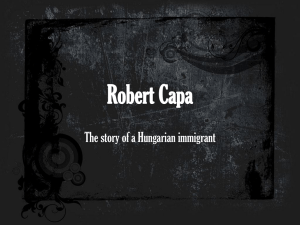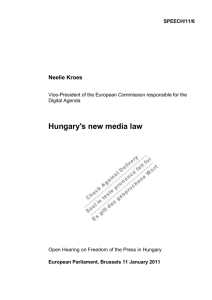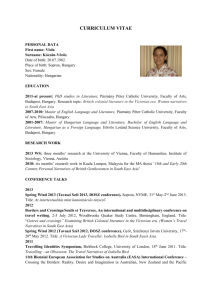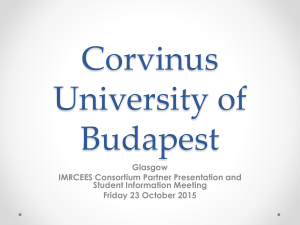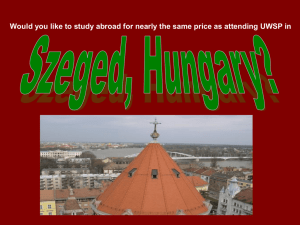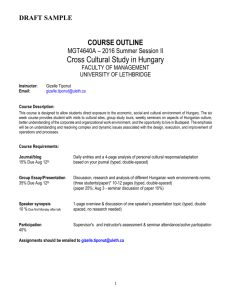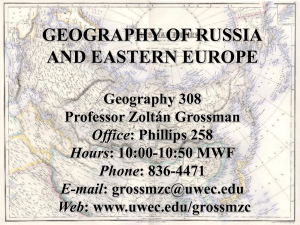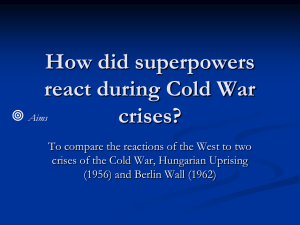Sandor Petofi (1823-49) is Hungary's most celebrated and
advertisement
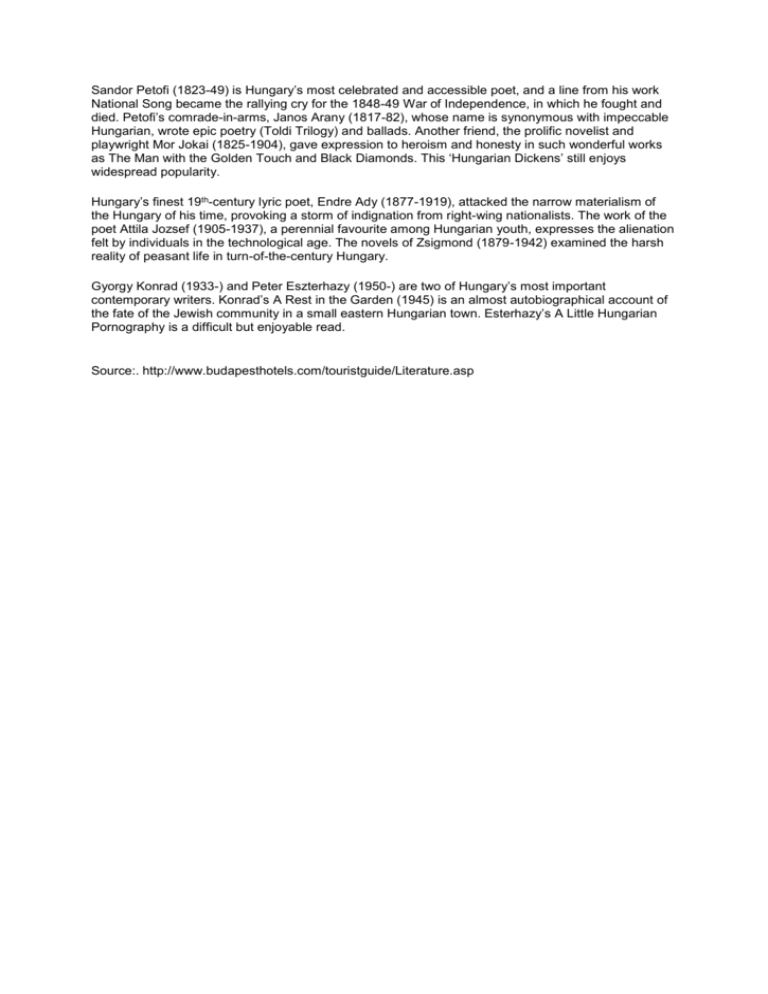
Sandor Petofi (1823-49) is Hungary’s most celebrated and accessible poet, and a line from his work National Song became the rallying cry for the 1848-49 War of Independence, in which he fought and died. Petofi’s comrade-in-arms, Janos Arany (1817-82), whose name is synonymous with impeccable Hungarian, wrote epic poetry (Toldi Trilogy) and ballads. Another friend, the prolific novelist and playwright Mor Jokai (1825-1904), gave expression to heroism and honesty in such wonderful works as The Man with the Golden Touch and Black Diamonds. This ‘Hungarian Dickens’ still enjoys widespread popularity. Hungary’s finest 19th-century lyric poet, Endre Ady (1877-1919), attacked the narrow materialism of the Hungary of his time, provoking a storm of indignation from right-wing nationalists. The work of the poet Attila Jozsef (1905-1937), a perennial favourite among Hungarian youth, expresses the alienation felt by individuals in the technological age. The novels of Zsigmond (1879-1942) examined the harsh reality of peasant life in turn-of-the-century Hungary. Gyorgy Konrad (1933-) and Peter Eszterhazy (1950-) are two of Hungary’s most important contemporary writers. Konrad’s A Rest in the Garden (1945) is an almost autobiographical account of the fate of the Jewish community in a small eastern Hungarian town. Esterhazy’s A Little Hungarian Pornography is a difficult but enjoyable read. Source:. http://www.budapesthotels.com/touristguide/Literature.asp
